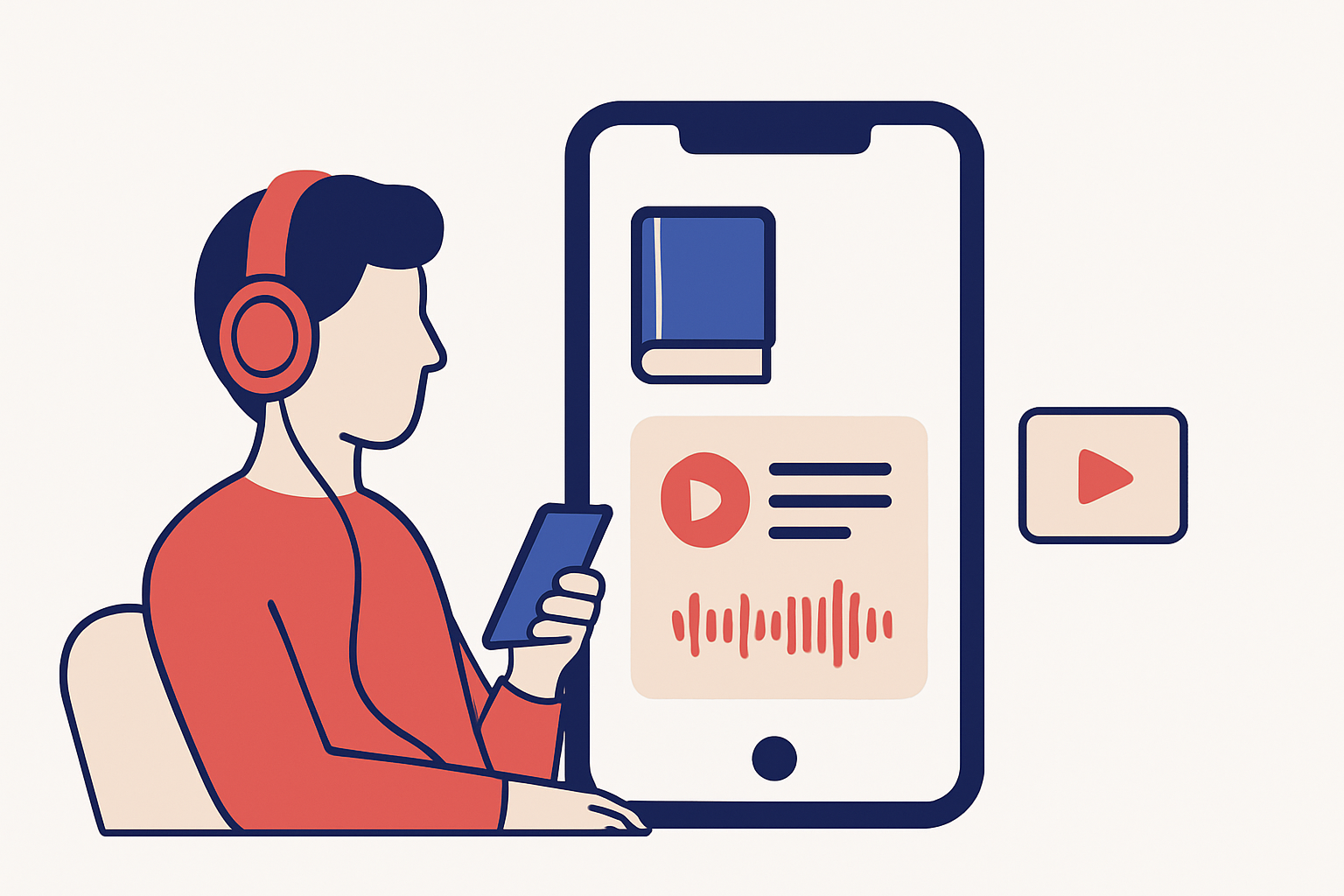Casual Learning for Modern Learners

In today’s digital world, attention spans are rapidly shrinking. Long-form lessons and traditional training sessions often fail to capture focus, leaving learners disengaged and overwhelmed. If you’ve struggled to stay attentive during lengthy courses or found it hard to carve out time for deep study, you’re not alone. The reality is that modern learners prefer information that’s easier to digest, delivered in shorter, more focused bursts. Casual learning directly answers this need with formats designed to match the way people now consume knowledge.
That’s where Audiorista comes in. Built for efficiency and distraction-free experiences, Audiorista equips creators and educators with the tools to deliver impactful, short lessons that match these evolving habits. Throughout this article, we’ll explore why casual learning aligns with the modern attention span, how it improves retention and engagement, and which tools make scaling casual learning simple and effective.
Why attention spans favor casual learning
We live in an environment filled with constant notifications, endless scrolling, and real-time updates. These behaviors have shaped new consumption patterns, where people engage best with quick interactions rather than prolonged sessions. Traditional approaches—long lectures, in-depth modules, and extended reading—struggle to hold attention in this fast-paced context.
Casual learning responds by breaking lessons into short, focused units. Learners can jump in quickly, consume content in manageable blocks, and instantly get value without committing to long periods of concentration. This structure not only fits within busy schedules but also mirrors the way people already engage with digital media daily. Because of this, modern learners now demand formats that are flexible and easy to absorb, favoring shorter lessons that align seamlessly with existing habits.
The benefits and strategies of casual learning
The shift toward casual learning isn’t just a trend; it delivers tangible benefits that directly improve the learner experience. Among the key advantages are:
- Improved retention: Short lessons are easier to revisit, creating opportunities for reinforcement and stronger long-term learning outcomes.
- Flexibility: Learners can access content on-the-go and fit lessons into busy schedules without sacrificing productivity.
- Reducing overwhelm: Complex subjects are easier to absorb when broken down into smaller, structured segments rather than presented all at once.
With these benefits, both learners and professionals gain the ability to engage more naturally and effectively, ensuring focus without the stress of committing to lengthy study sessions.
Short-lesson strategies to increase engagement
Microlearning strategies help maximize the potential of casual learning formats. By breaking topics into short lessons, creators encourage consistent engagement and help learners form sustainable habits. Short lessons also make it easier to recall information, as each unit focuses sharply on a single idea or skill. Scheduling frequent but brief lessons unlocks a compounding effect—knowledge is strengthened over time without requiring extended, draining study periods.
A key factor in the success of these strategies is their alignment with modern attention cycles. By keeping each learning moment concise, distractions are minimized and content stays impactful. For more insights, discover how to maximize listener focus while minimizing wasted time, ensuring that engagement remains high throughout the learning journey.
Tools that make casual learning scalable
While casual learning offers clear advantages, scalability depends on having the right tools. Effective platforms allow creators to produce and distribute short lessons quickly, eliminating barriers to delivery. From publishing tools that streamline production workflows to platforms optimized for brief content formats, modern technology now supports creators in reaching learners on their terms.
Audiorista is designed with this scalability in mind. By offering creators seamless publishing and engagement tools, the platform makes it simple to launch and manage short lessons without requiring complex production efforts. Audiorista’s no-code platform allows anyone to create branded audio apps, distribute content across web and mobile, and monetize learning experiences with built-in subscription and paywall features. In fact, quick start video features and preview apps from Audiorista make creating and testing new learning formats more accessible than ever before. By reducing friction, these tools give educators the freedom to focus on delivering value, not struggling with technology.
How casual learning improves focus and retention
On a psychological level, shorter lessons align perfectly with how the brain processes and stores information. Long sessions often lead to cognitive overload, which reduces the ability to retain key points. With shorter, structured content, learners engage in focused learning bursts that amplify concentration while keeping fatigue at bay. Over time, this improves the ability to recall what’s been taught.
Students benefit from being able to revisit lessons without feeling overwhelmed, professionals can fit training into their daily workflow, and teams can adopt continuous learning habits without scheduling challenges. By putting psychology to work, casual learning ensures stronger outcomes with less strain.
Audiorista plays a crucial role in enabling this approach by supporting structured, easy-to-consume lesson formats. With technology designed for modern attention spans, creators can stay confident that their content isn’t just being delivered but is actually being retained by learners. Audiorista’s analytics tools also help creators track engagement and retention, making it easy to optimize content for maximum impact.
Casual learning is not just a passing trend—it’s the backbone of how modern learners stay focused. By replacing long, traditional sessions with shorter, strategic bursts of knowledge, students and professionals alike can learn faster, stay engaged longer, and retain more information. This article reveals why casual learning is growing, how short-lesson strategies fuel engagement, and which platforms—like Audiorista—are empowering anyone to make learning scalable and irresistible.
Start creating focused, distraction-free learning experiences today with Audiorista—your shortcut to delivering powerful short lessons that speak to modern learners.


